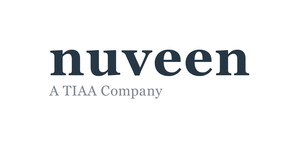- 56% Say Current Environment Like Nothing They've Ever Witnessed
- 64% Anticipate Fighting Inflation Risk for Two or More Years
- Most Investors Considering Climate Risk in Investment Decisions
- Impact Investment an Increasingly Key Portfolio Allocation
NEW YORK, March 22, 2023 /PRNewswire/ -- Faced with profound market change, both current and contemplated, major institutional investors around the world are taking concerted action to better position their portfolios for the future—from increasing investments in infrastructure and private assets, and reformulating capital market assumptions, to better quantifying the risks and opportunities of climate change and making a commitment to impact investments.
These are some of the primary findings of Nuveen's 3rd annual EQuilibrium Global Institutional Investor Survey, released today, which explores the insights and actions of 800 global institutional investors.
"Across the board, global investors are reassessing their views on risk and return, and preparing for a new market regime," said Mike Perry, Head of Nuveen's Global Client Group. "Institutional investors typically take a measured, incremental approach to portfolio changes. That makes the degree to which investors today are contemplating or making very significant changes even more striking."
When it comes to their portfolio strategies, a majority of investors are either "actively rethinking" (31%) or "redefining and reallocating" (27%) their portfolios. Nearly half (48%) are reformulating how they calculate capital market assumptions, 38% are making significant tactical allocation changes and 27% are making foundational changes to their strategic asset allocation.
The investors surveyed by Nuveen span North America, Europe, the Middle East and the Asia Pacific region; all are decision makers and represent organizations with at least $500 million in assets. The survey was conducted in October and November 2022.
A World Undergoing Dramatic Change
Investors are responding to an extraordinarily turbulent investment landscape, marked by surging inflation and extreme market volatility, war, climate disasters, and political and social unease. Investors picked energy supply disruptions, population demographic shifts and deglobalization as key megatrends that will impact their portfolios over the next five years.
Eight out of 10 investors agree that our world is changing dramatically and portfolio strategies need to keep pace; 74% say that the influence of geopolitics, in particular, on investment strategies is much more significant today than it has been over the last 30 years.
More than half of investors (56%) agree that the current investment environment is like nothing they've ever witnessed.
"The current environment has prompted investors to identify and take advantage of opportunities in sectors they may have previously overlooked," said Perry. "They're also focusing on newer, evolving portfolio goals, such as climate risk and impact."
Dialing Up Inflation Risk Mitigation and Private Investments
Most institutions (64%) are dialing up inflation risk mitigation; 64% expect to employ inflation-fighting strategies for two or more years. "The investor consensus is that inflation will continue to be a threat to portfolio returns through at least 2024," said Perry.
Investors are looking at a variety of assets to help weather inflation. While the top pick was private infrastructure, other popular choices were public equities, commodities, inflation-linked bonds and private real estate.
Investors are also continuing to lean into private markets. Even with the decline in public market valuations causing portfolio balances to shift more heavily toward private markets, most investors are planning either a gradual (63%) or significant (8%) increase to private assets over the next five years.
Marked Increase in Planned Alternative Allocations, Particularly Infrastructure
Compared with recent years, interest in alternatives has surged: in 2020 and 2021, about 25% to 35% of investors said they planned to increase allocations to the major categories of alternative asset classes. In 2022, the numbers grew to the 43% to 58% range.
Infrastructure was the most commonly picked asset for investors who plan to increase their alternatives allocations (chosen by 58% of investors). Investors indicated that they are using infrastructure for a host of solutions. Private infrastructure was the most often selected for inflation-risk mitigation and infrastructure debt was the top choice for allocations to alternative credit. In addition, infrastructure was picked most often as the asset class investors are prioritizing for their climate risk strategy.
"Investors are turning to infrastructure to help protect portfolios from inflation among other critical needs, such as increasing yield and mitigating climate risk," said Perry. "Infrastructure's ability to play multiple roles is a key driver of increased allocations."
Climate Risk Management and Reporting Growing in Importance
Globally, most investors either currently (61%) or plan to (22%) consider climate risk when making investment decisions. "These considerations can result in actions such as investing in new green energy opportunities, reducing allocations to companies or industries with high carbon emissions, and actively engaging with management teams to advocate for more climate-aware policies," said Amy O'Brien, Nuveen's Global Head of Responsible Investing.
Of investors considering or planning to consider climate risk, two in three (67%) say climate risk is a key factor in risk management today more so than five years ago. Forty-four percent say they report on climate risks and metrics; 38% say they are still exploring how to build a reporting framework. Only 16% say they do not report on climate risk to stakeholders or regulators.
"Though most investors are early on in developing specific climate risk reporting procedures, the high percentage of investors focusing on climate risk illustrates just how central it is to many investors' portfolio objectives," said O'Brien.
Impact Investments Aligned with Climate Strategy Goals
Almost three-quarters (74%) of investors globally consider or plan to consider the impact on the environment and society when making investment decisions. Of this group, 61% agree that impact investments will be an increasingly important allocation for them in coming years. Forty-five percent say they expect to get the same return from an impact investment as from a comparable traditional investment; 23% don't and 32% are neutral.
"Impact investing is still a new area for many investors, but as the number and variety of investments expand and the track record gets longer, it's becoming more and more important, and investors are becoming more knowledgeable and comfortable with the space," said O'Brien. "Allocation to impact investments is an issue of both financial performance and credibility – and we can solve for both of those through more robust and standardized measurement, transparency, and reporting."
Among impact-focused investors, 48% align impact with their climate strategy goals, so unsurprisingly the top picks for impact investing were energy innovations (69%) and infrastructure projects (62%). But social investments were also selected, with 33% of investors indicating interest in affordable housing.
Media Contact
Rebecca Vignali
Cell: 703-505-7954
[email protected]
About Nuveen
Nuveen, the investment manager of TIAA, offers a comprehensive range of outcome-focused investment solutions designed to secure the long-term financial goals of institutional and individual investors. Nuveen has $1.1 trillion in assets under management as of 31 Dec 2022 and operations in 27 countries. Its investment specialists offer deep expertise across a comprehensive range of traditional and alternative investments through a wide array of vehicles and customized strategies. For more information, please visit www.nuveen.com.
About Nuveen's EQuilibrium Global Institutional Investor Survey
Nuveen and CoreData surveyed 800 global institutional investors in 29 countries across North America, Europe, the Middle East and the Asia Pacific region in October and November 2022. The survey was supplemented with 10 qualitative interviews. Respondents are decision-makers at corporate pensions, public/governmental pensions, insurance companies, endowments and foundations, superannuation funds, sovereign wealth funds and central banks. Fifty-eight percent of asset owner survey respondents represent organizations with assets of $10 billion and above, and 42% represent respondents from organizations with less than $10 billion, with a minimum asset level of $500 million. The survey has a margin of error of ± 3.5% at a 95% confidence level.
Responsible investing incorporates Environmental Social Governance (ESG) factors that may affect exposure to issuers, sectors, industries, limiting the type and number of investment opportunities available, which could result in excluding investments that perform well.
SOURCE Nuveen

WANT YOUR COMPANY'S NEWS FEATURED ON PRNEWSWIRE.COM?
Newsrooms &
Influencers
Digital Media
Outlets
Journalists
Opted In





Share this article